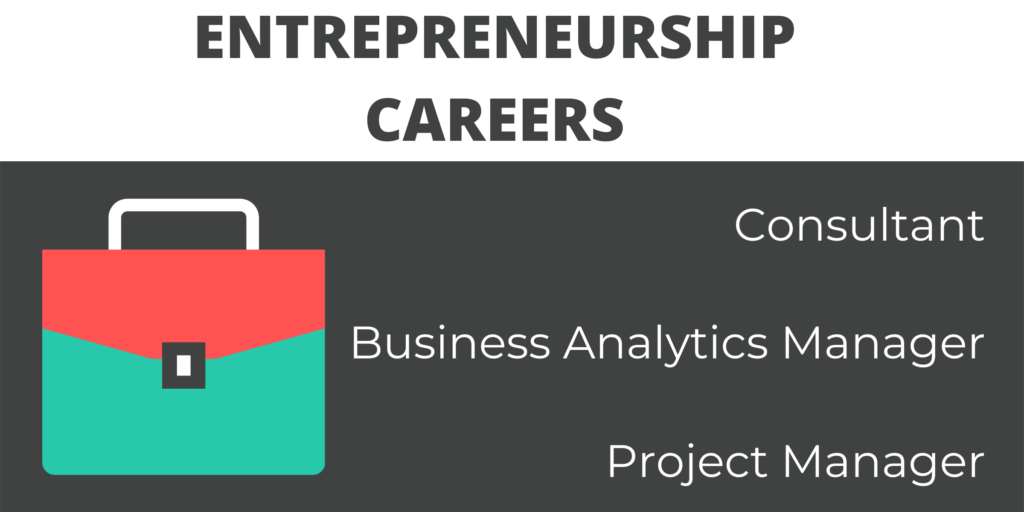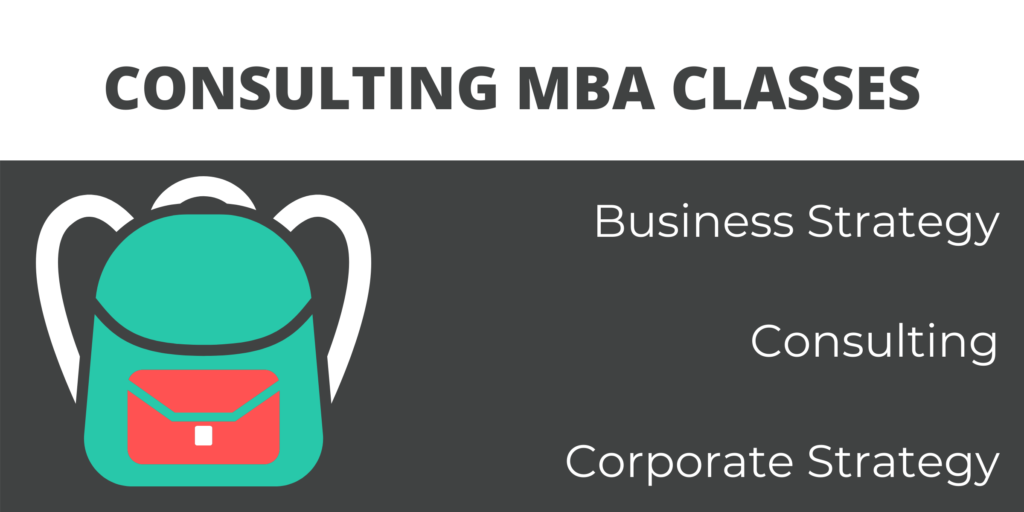In this guide we will present an in-depth profile of the consulting profession–with the most promising career outcomes laid out. But most importantly we will lay out how to reach these most promising career outcomes in a direct and efficient path. Building the appropriate level of expertise is crucial for becoming a successful consultant, so investing in the right degree program is paramount.
But in 2021 there has never been a better time to earn an advanced degree.Prospective consultants can earn a top-tier degree from the comfort of their own home. So with this in mind, we have compiled our most helpful resources on the topic below for easy reference. But to learn more about the consulting profession and specifically how to leverage a Consulting MBA to build lifelong professional success, be sure to read on to the guide below.
Online Business Degree Options by State
- Online Business Degree Opportunities: Arizona
- Online Business Degree Opportunities: Georgia
- Online Business Degree Opportunities: Illinois
- Online Business Degree Opportunities in California
- Online Business Degree Opportunities in Florida
- Online Business Degree Opportunities: Indiana
- Online Business Degree Opportunities: Massachusetts
- Online Business Degree Opportunities: Michigan
- Online Business Degree Opportunities: New Jersey
- Online Business Degree Opportunities: New York
- Online Business Degree Opportunities: North Carolina
- Online Business Degree Opportunities: Ohio
- Online Business Degree Opportunities: Pennsylvania
- Online Business Degree Opportunities: Texas
- Online Business Degree Opportunities: Virginia
- Online Business Degree Opportunities: Washington
MBA Programs: General Questions & Concerns
- Should I Get an MBA Online?
- What Career Can I Expect With an MBA?
- What is an MBA?
- What Can I Do with an MBA?
- Can I Get an MBA With Only a Liberal Arts Degree?
- Career Outlook For MBA’s
- Closing the Gap: The Rise of Women in MBA Programs
- How Quickly Can I Get an MBA?
- How to Choose a Quality MBA Program
- How To Choose An MBA Specialization
- International MBAs Vs Domestic MBAs
- Is an MBA Right for Someone Without a Business Degree?
- The Ultimate MBA Guide for Military Veterans
Best MBA Degree Programs
- 10 Best Online Supply Chain Management MBAs
- The 10 Best Online Finance MBA Degree Programs
- The 10 Best Online Human Resources MBA Degree Programs
- The 10 Best Online Marketing MBAs
- The Best Online Real Estate MBA Degree Programs
- 15 Best Online Cyber and Information Security MBA Degrees for 2021
- 15 Best Online MBA Degree Programs for 2020
- 15 Best Online MBA in International Business Degrees for 2021
- 25 Best Campus MBA Degree Programs for 2020
- 25 Best Cyber and Information Security MBA Degrees for 2021
- 25 Best MBA in International Business Programs for 2021
Fastest and Most Affordable MBA Programs
- 10 Fastest Online Cyber and Information Security MBA Degrees for 2021
- 10 Fastest Online International Business MBA Degrees for 2021
- 10 Fastest Online MBA Degree Programs for 2020
- 10 Most Affordable Cyber and Information Security MBA Degrees for 2021
- 10 Most Affordable International Business MBA Degrees for 2021
- 10 Most Affordable Online MBA Degree Programs for 2020
- Accelerated MBA Programs
Resources for Entrepreneurial Consultants
- Entrepreneur U: Schools for Start Ups
- 101 Entrepreneur Quotes for Every Situation
- What Is Social Entrepreneurship? + How to Impact Change With Your Business Degree
- What’s The Best Degree For Becoming An Entrepreneur?
- What Makes an International Destination Business Friendly?
- The Best Business iPhone and iPad Apps
- Do You Need A Business Degree To Run Your Own Business?
- 35 Women-Owned Business Statistics You Need to Know in 2021
- 30 Best Automation Technology Tools to Level Up Your Business
- What Goes Up In a Down Economy
- Foray Into Franchising
- An Introductory Course On Starting Your Own Business
What is a Career in Consulting?
A career in consulting can manifest in many forms. Consultants work in pretty much any industry that makes use of expert opinion, guidance, and analysis. Consultants are professional experts by trade: they spent the majority of their education and training to build comprehensive expertise in a single area such as finance, health, or technology and then they leverage this expertise to help clients reach their goals.

Consultants take on many different types of clients–from individuals, to groups, to entire companies. Consultants work in a range of work environments as well–from private practice, to consulting agencies, or even as a side hustle. The exact path that a consultant treads will depend entirely on his or her desired professional destination.
As one might expect, some industries are more welcoming to consultants than others. Some industries are crowded with consultants and so the bar is set high for the necessary expertise required to be competitive in these job markets. Other industries are highly welcoming to consultants but require a niche specialty, such as productivity consultants for water usage on industrial farms.
In other words, while the consultancy profession adheres to a basic model of expert opinion, analysis, and recommendation, the particular format of an individual’s consulting career will depend entirely on the market in which they have chosen to specialize. We will explore these specialties in-depth shortly, but first let’s take a look at consulting education.
What is the Typical Education for a Consultant?
As readers might suspect the degree and education paths leading to the consulting profession are as varied as the professional outcomes are for individual consultants. Consultants enter the job market with any level of education, and some even find success entering the consulting space straight out of high school–though one must have tremendous aptitude and existing expertise to pull this off.

Most consultants will find it necessary to earn at least a Bachelor’s degree. But one of the selling points of consultancy education is the freedom for students to major in whatever area they wish to specialize in. At least at the Bachelor’s degree level, prospective consultants can feel free to begin establishing the expertise that they will later leverage in their profession.
But as is the focus of this guide, consultants will often need to pursue studies education in graduate school and in some cases a doctorate program. If consultants commonly find success at all levels of education, then why do some invest so aggressively in expensive and time consuming graduate and postgraduate degrees?
Well the short answer is–they do so to specialize. While a talented individual may leverage existing aptitude and expertise to successfully fill in the role of consultant in a field such as financial consulting or fitness consulting without an advanced degree, as mentioned above many industries are simply too deep, complex, and technical for a consultant to succeed without a number of accolades to demonstrate and verify one’s professional expertise.
So here is a breakdown of the primary education paths for the consulting profession, and the tradeoffs therein:
Highschool Diploma
Pros
- Entering the job market early in one’s life allows one to begin building valuable real world experience as soon as possible.
- This strategy will open the door to opportunities that require 5-10 years industry-experience much sooner than for those earning degrees full-time.
- Choosing and committing to a specialization early in life is highly attractive to employers, clients, and partners.

Cons
- Being able to obtain an authentic level of expertise by this point in life is tremendously difficult, and will be unreasonable for most.
- Committing too early to a particular specialty can prevent professionals from learning of other options that they might have learned about in college.
- Employers and clients may be dissuaded by a lack of degree holdings.
Associate’s and Bachelor’s
Pros
- Associate’s and Bachelor’s degree programs provide the freedom and flexibility for students to pursue any major they wish in order to establish their desired specialty.
- Many consultancy agencies require at least a Bachelor’s education.
- Many universities offer students the networking opportunities needed to launch a consulting career.
Cons
- Traditional Bachelor’s degree programs require full-time engagement for a whopping four year commitment.
- Depending on a consultant’s chosen specialty, an Associate’s or Bachelor’s degree may not provide the requisite depth of study needed for more advanced expertise.
- Time spent in a four year degree program could have been spent building real world professional expertise in one’s target market.
Master’s or MBA
Pros
- Master’s and MBA programs provide the strongest boost to one’s credentials that will help to demonstrate and validate the expertise needed to succeed as a consultant.
- Graduate level program faculty typically have strong industry-ties, which students can tap into for building their clientele.
- Graduate level programs often offer internship opportunities at top companies around the world that will be ideal for a consultant.
Cons
- Graduate level programs are often difficult and expensive with comprehensive curriculums that might only partially focus on issues relevant to prospective consultants.
- To make the most of a graduate degree for consulting, students must ensure the program’s curriculum mirrors a student’s particular interests and desired specialty, which significantly restricts available program options.
Doctoral Education
Pros
- The pinnacle of education: consultants with a doctorate degree will find no trouble succeeding in their role.
- The expert knowledge conferred in a doctorate program will be hard if not impossible to learn elsewhere.
- Doctoral programs often provide students with the opportunities to pursue thesis and independent research projects, which is an excellent chance to further demonstrate a unique area of expertise that will be the focus of one’s consulting career.
Cons
- A doctorate degree is among the most arduous journeys to embark on in all of academica.
- In order to be eligible for some doctoral degree programs you need to establish a specialization very early, which can be difficult for many.
- It can be difficult to find a doctoral program that is willing to offer the flexibility in curriculum that is needed for consultants to pursue niche interests and market queries.
The Difference between an MBA and a Consulting MBA?

A traditional MBA program is designed entirely to propel business leaders to the upper echelon of their profession. Some MBA programs boast of a 10 year ROI (relative to cost of tuition) of returns as high as 350%. In other words, an MBA program is designed to teach business professionals how to create success in their own lives as well as for the companies they work with.
MBA programs have some stringent prerequisites and require real-world business experience in some of the most prestigious programs, so for a consultant interested in earning a top tier MBA it is paramount that they establish some business education in their undergraduate tenure.
MBA program curriculums are designed to reflect the demands of the exemplary business markets. Students will learn the various organizational structures of commercial enterprises around the world, marketing strategies, and leadership techniques. MBA students can expect to delve into comprehensive examinations of the following subjects:
- Accounting
- Asset Valuation
- Budgeting
- Business Ethics
- Communications
- Economics
- Finance
- Leadership, Teamwork, Management
- Managerial Accounting
- Marketing
- Organizational Behavior
- Quantitative Finance
- Sales
- Statistics
- Stock and Commodities Exchange
A Consulting MBA program however, narrows the scope of focus in the program curriculum. Rather than progressing through comprehensive investigations of the various elements of high level business, special emphasis is placed on topics relating to the consultant’s profession and the unique challenges they face.

Though it should be stated clearly so there is no confusion–a Consulting MBA will be highly business-focused, and students will need to take special efforts to ensure an MBA is the proper preparation for one’s desired specialty. If the desired consulting specialty is an area relating to business management, marketing, or sales–then a consulting MBA is without a doubt your best option.
Students in such a program can expect to cover coursework in the following areas:
- Consulting Business Strategy
- Consulting Roles
- Corporate Strategy
- Global Supply Chain Management
- Industry Analysis Strategies
- Informative Decision Making
- Innovation Management
- Market Analysis
- Marketing Strategy Consulting
- Negotiations
- Performance Reviews and Metrics
- Relationship Proposition Strategies
- Statistical Analysis
The Consulting Industry in 2021 and Beyond
The consulting market as a whole is a tremendously promising sector of business markets. In fact, in 2019 the global consulting market was forecasted to hit a value of nearly $300 billion which ended up being a conservative forecast as the market expanded past this figure quickly leading into 2020.

In the last section, we will dive more deeply into the most promising consulting industry sectors as well as compensation averages, employment rates, and job market metrics. But for now let’s examine some of the most impactful trends that are shaping the consultancy profession as we speak.
These promising developments may just help you decide what you want to do with your Consulting MBA after graduation. There are six major forces of evolution currently in the consulting space:
- The Pandemic
- Remote Consulting
- The Tech Industry
- Automation and AI
- Open-Source Learning
- Social Media and Youtube Influencers
The Pandemic
The pandemic has had an impact on every business market in the world. Some of these consequences might be measured as positive while others will be unanimously measured as catastrophic. So how has the worldwide pandemic affected the consulting space?
Foremost, the pandemic has put many businesses in a difficult spot–financially, socially, and otherwise. In times of financial concern, the consultancy market expands particularly in sectors of business-management and business-productivity consulting. Where business owners and companies might have felt confident before, they are now relenting and look to expert consultants to show the way to more promising outcomes.
Remote Consulting
Remote consulting was already on the rise but pandemic solidified forever as an efficient and sufficient means of working with existing clients and even onboarding new clients. Before the pandemic, consultants typically visited their clients to physically explore and observe their operations.
But now due to obvious constraints and concerns, consultants are conducting this process remotely through video conferences and other remote analysis techniques. The result is that physical visits will only be considered normal in the case of catastrophe aversion where a client needs immediate assistance. This is excellent news for consultants who have their eye on building a clientele around the country, or even around the world for that matter.
The Tech Industry

The technology and information technology markets have had a tremendous effect on the development and evolution of the consulting industry. This influence can be separated into two separate forces of change:
- Tech Markets are One of the Most Promising Industries for Consultants
Technology markets are growing at such a rapid pace that many tech companies are in dire need of consultants who can help fledgling tech companies scale to meet the titanic demand that so often cripples young tech enterprises.
Similarly, many tech companies are so hyper specialized that they require technology consultants to help them make use of tech with which they may not be as familiar.
- New Tech is Streamlining the Consultancy Profession
As mentioned above, the remote consulting industry is booming and that is due in no small part to new technology. Beyond remote consulting, consultants have access to a bevy of statistical analysis tools, data presentation apps, and business intelligence software that would make consultants from the 90s drool in jealousy.
Automation and AI
Perhaps the most promising technology is in automation and artificial intelligence. Much of the consultant’s profession is onboarding new clients and then using a range of advanced tools and techniques to glean valuable directives for said client. Automation tech is now allowing consultants to automate large portions of the onboarding process, performance reviews, and other steps in the business analysis process.
AI is helping consultants to provide more meaningful and helpful information, but it is also encroaching on the consultant’s job as well. Many consultants fear that as AI becomes more proficient at mapping and evaluating companies’ business strategies that their jobs will be in danger. One way to circumnavigate this concern is for consultants to master the use of relevant AI software, so that it enhances their abilities rather than replacing it.
Open Source Learning, Social Media Influencers, and YouTubers
These two forces are grouped together because they are enacting a similar force of change in the consulting industry. Massively Open Online Courses (MOOCS), high quality blogs, and online guides are providing consumers and business owners with the tools to better understand their particular endeavors–whether they be health and fitness, entrepreneurship, or software development.
It is all on the internet. If you want to become an ‘expert’ at something, there is a YouTube channel designed specifically for that, no matter how niche. What’s more is that you have social media influencers who amass millions of followers by brandishing their expert opinions (of course whether these opinions are actually expert level is up for debate). These influencers are filling the role of the consultant and driving down demand for them particularly in subject-areas with low barrier to entry.
Open Source Learning and Consultancy
This calls for an increased level of pedigree, education, and expertise in consultants. If the barrier to entry is lower in a certain subject, then a consultant in that market should double-down on efforts to build a high level of expertise that consumers and clients will not likely replicate.
Unfortunately, it is looking like the availability of information and the low barrier of entry to specialty knowledge and skill-building is driving up the necessary requirements for success in consulting. But of course, if you have earned or are looking to earn a Consulting MBA then you already knew that.
Industry Snapshot and Job Market Profile
But do not worry, the consulting industry is looking tremendously strong overall–even amidst a world pandemic, open source learning, and encroaching tech. But as mentioned repeatedly in this guide, the exact format and landscape of one’s consulting profession will depend entirely on their area of specialty.
It is for this reason that the Bureau of Labor Statistics does not directly report on the consulting profession specifically. Instead they paint a vivid profile for one of consulting’s largest and most specific sectors, namely that of management analysis.
Management Analysts are professionals who specialize in the observing, measuring, and evaluating of business operations–particularly in how the operation is managed from the top-down–in other words, management analysts look at how orders and directives are carried out from the top of an organization, its leadership, down to mid-level employees and managers, and then down to bottom-level employees.
The management analyst profession is viewed as sort of litmus test for the health of the overall consulting market, so let’s explore the BLS profile for the Management Analyst in more depth:
Management Analyst Job Profile
- As of 2019 there were 876,300 management analysts in the US
- Job market projected to grow 11% through 2029
- This equates to nearly 98,000 new jobs created from 2019 to 2029
- As of 2019 the median pay was $85,260 per year
- Equates to an hourly rate of $40.99
- Lowest 10% earn $49,700 annually
- Top 10% earn $154,310 annually
- Entry level positions typically require a Bachelor’s degree
- Positions typically require less than 5 years related-job experience
Management Analyst: Promising Industries
- Professional, scientific, and technical services
- Median Annual Salary: $91,160
- Finance and insurance
- Median Annual Salary: $84,940
- Management of companies and enterprises
- Median Annual Salary: $84,390
- Government
- Median Annual Salary: $79,720
Significant takeaways here are that the top-end salaries for management analysts nearly double the median annual pay, meaning that there is tremendous financial incentive to work towards an MBA level education. Similarly, as one might expect from the discussion concerning the influence of technology in the consulting space, which explains the sizable jump in earning potential within the ‘Professional, scientific, and technical services’ sector.
Carrie Morris
Author
Warren Dahl
Editor-in-Chief

